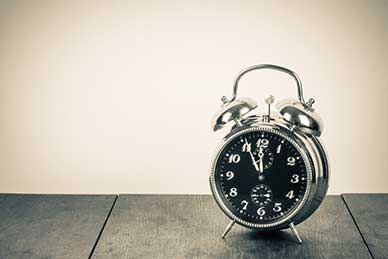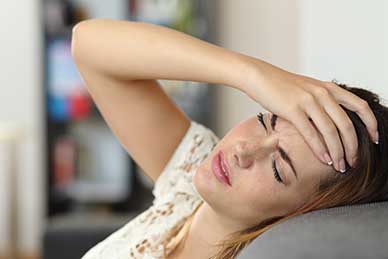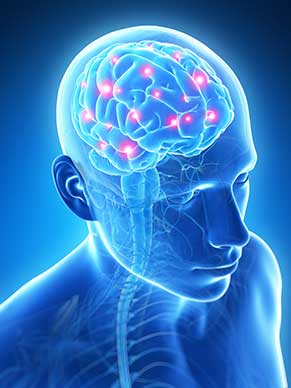We are exposed to germs almost constantly throughout the day. However, most of us rarely get sick despite this constant barrage of pathogens. The reason for this is the action of our immune systems. Our immune systems are constantly on guard against disease-causing microbes and are usually very effective at protecting us. Yet, new research suggests that there is a connection between infections and the circadian rhythm. Like every other system in our bodies, our immune system has an internal clock that causes it to be more effective at certain times of the day.
How Viruses Infect Cells
There are thousands of types of viruses that cause illnesses ranging from the common cold to Ebola. However, they all infect our bodies in similar ways. A virus first enters through a break in the skin, our mouths, or another portal into the body. From there, they attach to cells and inject the contents of their genome. They then use cell machinery to manufacture more viruses. The infected cell bursts open and new viruses are spilled into the bloodstream.
Our bodies have a variety of complex ways to deal with a potential viral infection. Our immune systems produce macrophages that engulf and deactivate viral particles when they are found in our bloodstream, preventing them from infecting cells. In addition, T lymphocytes can recognize cells infected with viruses and kill them before more viruses can be made. Interestingly, these processes appear to be less effective in the morning, according to recent studies.
Infections and the Circadian Rhythm
 Researchers studied groups of mice who were exposed to viruses at different parts of the day. Those who were exposed just before their resting phase (equivalent to evening for humans) had faster viral replication and more symptoms of illness than mice infected at the beginning of their waking phase (equivalent to morning for humans). This difference was not a small one; mice infected in their evening exhibited 10 times as much viral replication as those infected at another point in the day.
Researchers studied groups of mice who were exposed to viruses at different parts of the day. Those who were exposed just before their resting phase (equivalent to evening for humans) had faster viral replication and more symptoms of illness than mice infected at the beginning of their waking phase (equivalent to morning for humans). This difference was not a small one; mice infected in their evening exhibited 10 times as much viral replication as those infected at another point in the day.
This is not the first time researchers have found a link between the severity of infections and the circadian rhythm; previous studies have found that people who have a disrupted or absent circadian rhythm are more likely to get sick, more likely to miss work on a regular basis and even more likely to develop serious and life-threatening diseases such as type 2 diabetes and heart disease.
The Circadian Rhythm of Your Immune System
There are many theories about how your circadian rhythm may affect your immune system. Memory T cells, which are important in recognizing viruses we have encountered before, appear to replicate rapidly in slow wave sleep. This means that we will be able to mount a quicker response to viruses immediately following sleep, which is consistent with the results of this study. In addition, our bodies undergo vital cell repair processes while we sleep, which can improve our immune systems and also help us to recover more quickly from illnesses. Regardless of the exact reason for the link between infections and the circadian rhythm, the evidence is clear: Getting exposed to a virus in the hours before we go to bed is more likely to lead to illness and even cause a more severe illness than if we had been exposed earlier in the day.
Getting Sick Too Much? Sleep May Help
Obviously getting sleep can help give our immune system a needed boost, which is more important than ever as we approach flu season. However, for many people this is easier said than done. Chronobiology experts suggest lowering lights before bed, keeping roughly the same bedtimes every night and taking a melatonin supplement if necessary. On the other hand, even these behavioral changes may not be enough for shift workers and other people whose lives don’t allow healthy sleep patterns. Researchers involved in these recent studies linking infection and circadian rhythm suggest that people who work evenings or nights make sure they get their flu vaccination to ensure they have all the immunity that they can get.
 In medications, as in comedy, timing may indeed be an important factor in how we respond to treatments that both make us more comfortable and extend our lifespans.
In medications, as in comedy, timing may indeed be an important factor in how we respond to treatments that both make us more comfortable and extend our lifespans.  There is significant research maintaining healthy levels of melatonin through supplementation and other means may be helpful for many migraine sufferers. Melatonin has been shown to be
There is significant research maintaining healthy levels of melatonin through supplementation and other means may be helpful for many migraine sufferers. Melatonin has been shown to be  Unsurprisingly,
Unsurprisingly,  Humans evolved under the light of the sun by day—and the lack thereof at night. It is deeply ingrained in us to be active while the sun shines and then to settle down to sleep when dusk hits. However, now the lines have blurred. For most of us, the cold glare of fluorescent lights dominates our lives. Not only are we trapped under bright lights all day, but we are
Humans evolved under the light of the sun by day—and the lack thereof at night. It is deeply ingrained in us to be active while the sun shines and then to settle down to sleep when dusk hits. However, now the lines have blurred. For most of us, the cold glare of fluorescent lights dominates our lives. Not only are we trapped under bright lights all day, but we are While we now live under bright lights, this is not how we evolved. If you are looking for ways to be more productive in your day, it might be time to get in touch with your evolved self. Find ways to be more active. Seek light during the day and darkness at night. In short, try to live as our ancestors did as much as possible.
While we now live under bright lights, this is not how we evolved. If you are looking for ways to be more productive in your day, it might be time to get in touch with your evolved self. Find ways to be more active. Seek light during the day and darkness at night. In short, try to live as our ancestors did as much as possible.  The problem for many modern people is that reducing light exposure can be a difficult task. We have televisions and devices that can be turned off, but these are not the only contributors to an increasingly light world. Many streetlights are high color temperature LED lights, which cause a huge range of negative health effects. In fact, the
The problem for many modern people is that reducing light exposure can be a difficult task. We have televisions and devices that can be turned off, but these are not the only contributors to an increasingly light world. Many streetlights are high color temperature LED lights, which cause a huge range of negative health effects. In fact, the